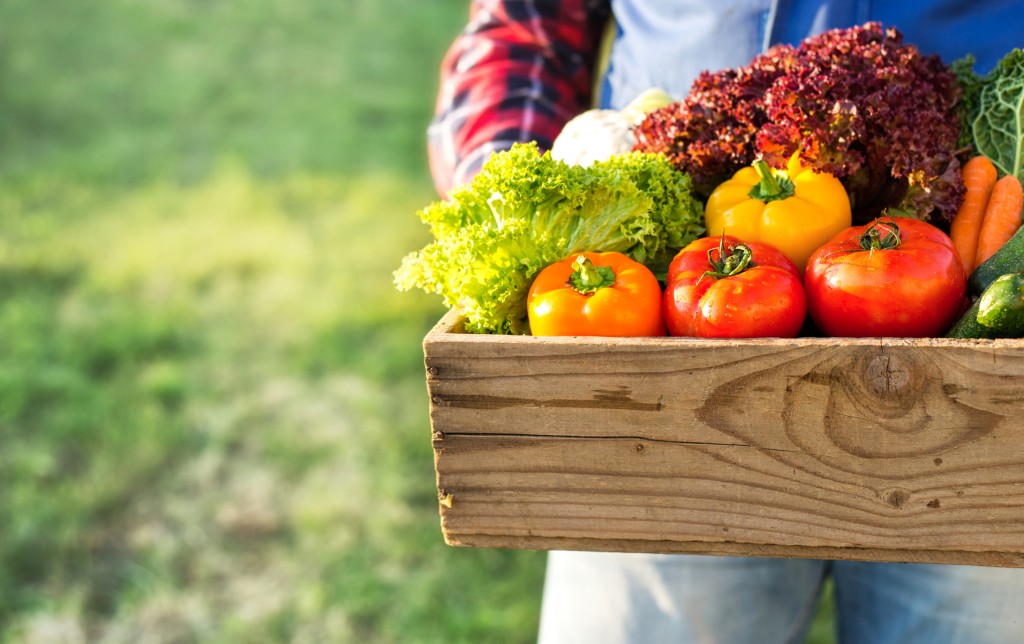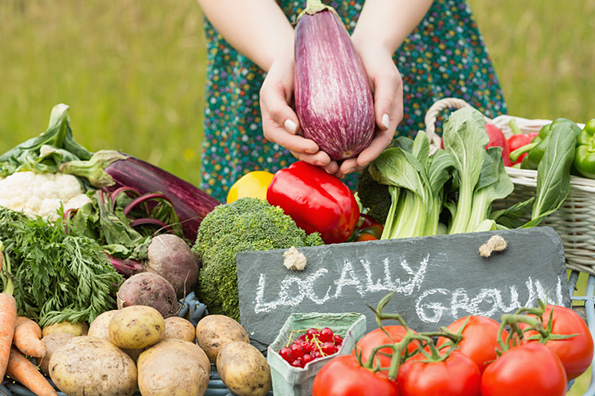Best Questions To Ask at Your Local Farmers’ Market

Not only is going to the farmers’ market a fun way to pass a sunny weekend afternoon, it also has immense benefits for farmers and consumers alike. Farmers’ markets play a key role in preserving farmland, stimulating local economies, increasing access to local and fresh food, and promoting sustainability.
Here’s how to get the most out of your next visit.
How can I eat clean and organic without breaking the bank?
If you’re on a budget but value organic produce, pay attention to the Environmental Working Group (EWG)’s “Dirty Dozen” list. Peaches, nectarines, and strawberries are abundant and delicious in August, but they are some of the most pesticide-contaminated fruits for purchase. Try to go organic with these. The same goes for cherries, spinach, potatoes, and peppers.
Meanwhile, cabbage, sweet corn, onions, sweet potatoes, cauliflower, and more are all part of the EWG’s “Clean Fifteen” list, which denotes produce least likely to contain pesticide residues. To save money, consider buying conventional on these foods and to avoid the dirty dozen. Of course, each farmer has different practice. Such lists provide guidelines, but not absolutes. The only way to truly know what’s in these foods is to talk to the vendors and farmers themselves.
How can I know what’s really in the food?
When choosing between farmers for your cage-free eggs, tomatoes, or any other farmers’ market item, be sure to ask the farmers themselves your questions about their growing/raising practices. If you’re willing to spend the time and money to purchase your produce from the market, invest the extra few minutes it takes to get to know your farmer and how they operate their business.
Markets are different than natural food stores in that the produce isn’t necessarily marked as organic or non-GMO. This is when talking to your farmer becomes imperative. Farmers at the market don’t always have to go through the organic certification process if they gross under $5,000 per year. Instead, they keep diligent records of their practices to ensure their produce is organic. So, without a USDA Organic seal, you have to talk to the farmers. Plus, some producers practice farming methods that are arguably better than organic, such as biodynamic farming.
Here are a few questions to ask the next time you’re shopping at your farmers’ market:
- Is your food certified organic?
- How is this fruit/vegetable grown?
- How do you control for insects and weeds? Do you use pesticides?
- Where is your farm located?
- What do you feed your chickens?
- How should I prepare this food?
Use these questions to gauge whether the farm is one that is up to your standards. If it’s not, there are most likely other farmers that will better align with your values. One of the most important benefits of farmers’ markets is that they support healthy communities and educate their shoppers. Get to know your farmer and get to know your food. If they are someone who openly engages with you, it’s a telling sign that their practices and products are ones to be proud of. “If you feel you are getting unclear answers, then move on to the next booth. Organic farmers are proud of their growing methods and will be able to answer those questions,” says Jessie Shafer, RD.
The Alliance for Food and Farming published a comprehensive guide with tips to help choose a vendor while shopping at a farmers’ market. “If this is a new shopping experience or if a consumer is exploring a market they haven’t visited before, we’ve developed a brief list of food safety questions to consider asking vendors to ensure the food is grown safely and responsibly,” says Marilyn Dolan, AFF Executive Director.
By shopping at your local farmers’ market, you’ll bolster your county’s economy, support your neighbors, promote sustainability, foster healthy communities, and end up with fresher, traceable foods.
By Drea Miesnieks

